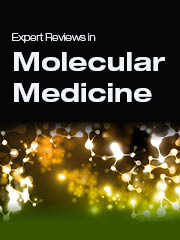Crossref Citations
This article has been cited by the following publications. This list is generated based on data provided by
Crossref.
Mitsuhashi, Shogo
Fukushima, Takeshi
Tomiya, Masayuki
Santa, Tomofumi
Imai, Kazuhiro
and
Toyo’oka, Toshimasa
2007.
Determination of kynurenine levels in rat plasma by high-performance liquid chromatography with pre-column fluorescence derivatization.
Analytica Chimica Acta,
Vol. 584,
Issue. 2,
p.
315.
Mitsuhashi, Shogo
Fukushima, Takeshi
Arai, Kotaro
Tomiya, Masayuki
Santa, Tomofumi
Imai, Kazuhiro
and
Toyo’oka, Toshimasa
2007.
Development of a column-switching high-performance liquid chromatography for kynurenine enantiomers and its application to a pharmacokinetic study in rat plasma.
Analytica Chimica Acta,
Vol. 587,
Issue. 1,
p.
60.
Macchiarulo, Antonio
Nuti, Roberto
Bellocchi, Daniele
Camaioni, Emidio
and
Pellicciari, Roberto
2007.
Molecular docking and spatial coarse graining simulations as tools to investigate substrate recognition, enhancer binding and conformational transitions in indoleamine-2,3-dioxygenase (IDO).
Biochimica et Biophysica Acta (BBA) - Proteins and Proteomics,
Vol. 1774,
Issue. 8,
p.
1058.
Maneglier, Benjamin
Rogez‐Kreuz, Christine
Spreux‐Varoquaux, Odile
Malleret, Benoit
Thérond, Patrice
Samah, Boubekeur
Drouet, Isabelle
Dormont, Dominique
Advenier, Charles
and
Clayette, Pascal
2007.
Comparative effects of two type I interferons, human IFN‐α and ovine IFN‐τ on indoleamine‐2,3‐dioxygenase in primary cultures of human macrophages.
Fundamental & Clinical Pharmacology,
Vol. 21,
Issue. 1,
p.
29.
Fukushima, Takeshi
Mitsuhashi, Shogo
Tomiya, Masayuki
Kawai, Junko
Hashimoto, Kenji
and
Toyo'oka, Toshimasa
2007.
Determination of rat brain kynurenic acid by column‐switching HPLC with fluorescence detection.
Biomedical Chromatography,
Vol. 21,
Issue. 5,
p.
514.
Evans, Andrew K.
Reinders, Niels
Ashford, Katie A.
Christie, Isabel N.
Wakerley, Jonathan B.
and
Lowry, Christopher A.
2008.
Evidence for serotonin synthesis-dependent regulation of in vitro neuronal firing rates in the midbrain raphe complex.
European Journal of Pharmacology,
Vol. 590,
Issue. 1-3,
p.
136.
Temperini, Claudia
Innocenti, Alessio
Scozzafava, Andrea
and
Supuran, Claudiu T.
2008.
Carbonic anhydrase activators: Kinetic and X-ray crystallographic study for the interaction of d- and l-tryptophan with the mammalian isoforms I–XIV.
Bioorganic & Medicinal Chemistry,
Vol. 16,
Issue. 18,
p.
8373.
Lehrmann, Elin
Guidetti, Paolo
Löve, Arthur
Williamson, John
Bertram, Edward H.
and
Schwarcz, Robert
2008.
Glial activation precedes seizures and hippocampal neurodegeneration in measles virus–infected mice.
Epilepsia,
Vol. 49,
Issue. s2,
p.
13.
Robotka, Hermina
Toldi, József
and
Vécsei, László
2008.
L-kynurenine: metabolism and mechanism of neuroprotection.
Future Neurology,
Vol. 3,
Issue. 2,
p.
169.
Xiao, Le-Dong
Luo, Xi-Bo
Pi, Lan-Gan
and
Tang, Ai-Guo
2008.
Simultaneous determination of kynurenine and kynurenic acid concentrations in human serum by HPLC with dual wavelengths fluorescence detection.
Clinica Chimica Acta,
Vol. 395,
Issue. 1-2,
p.
178.
Maron, Eduard
Shlik, Jakov
and
Nutt, David J.
2008.
Tryptophan Research in Panic Disorder.
International Journal of Tryptophan Research,
Vol. 1,
Issue. ,
p.
IJTR.S929.
Miller, Christine L.
Llenos, Ida C.
Cwik, Mary
Walkup, John
and
Weis, Serge
2008.
Alterations in kynurenine precursor and product levels in schizophrenia and bipolar disorder.
Neurochemistry International,
Vol. 52,
Issue. 6,
p.
1297.
Braidy, Nady
Grant, Ross
Brew, Bruce J
Adams, Seray
Jayasena, Tharusha
and
Guillemin, Gilles J.
2009.
Effects of Kynurenine Pathway Metabolites on Intracellular NAD+ Synthesis and Cell Death in Human Primary Astrocytes and Neurons.
International Journal of Tryptophan Research,
Vol. 2,
Issue. ,
p.
IJTR.S2318.
Chen, Yiquan
and
Guillemin, Gilles J.
2009.
Kynurenine Pathway Metabolites in Humans: Disease and Healthy States.
International Journal of Tryptophan Research,
Vol. 2,
Issue. ,
p.
IJTR.S2097.
de Jong, Wilhelmina H.A.
Smit, Reinier
Bakker, Stephan J.L.
de Vries, Elisabeth G.E.
and
Kema, Ido P.
2009.
Plasma tryptophan, kynurenine and 3-hydroxykynurenine measurement using automated on-line solid-phase extraction HPLC–tandem mass spectrometry.
Journal of Chromatography B,
Vol. 877,
Issue. 7,
p.
603.
Muck-Seler, Dorotea
Presecki, Paola
Mimica, Ninoslav
Mustapic, Maja
Pivac, Nela
Babic, Ana
Nedic, Gordana
and
Folnegovic-Smalc, Vera
2009.
Platelet serotonin concentration and monoamine oxidase type B activity in female patients in early, middle and late phase of Alzheimer's disease.
Progress in Neuro-Psychopharmacology and Biological Psychiatry,
Vol. 33,
Issue. 7,
p.
1226.
Durant, C.
Christmas, D.
and
Nutt, D.
2009.
Behavioral Neurobiology of Anxiety and Its Treatment.
Vol. 2,
Issue. ,
p.
303.
Clarke, Gerard
Fitzgerald, Peter
Cryan, John F
Cassidy, Eugene M
Quigley, Eamonn M
and
Dinan, Timothy G
2009.
Tryptophan degradation in irritable bowel syndrome: evidence of indoleamine 2,3-dioxygenase activation in a male cohort.
BMC Gastroenterology,
Vol. 9,
Issue. 1,
Costantino, Gabriele
2009.
New promises for manipulation of kynurenine pathway in cancer and neurological diseases.
Expert Opinion on Therapeutic Targets,
Vol. 13,
Issue. 2,
p.
247.
Rook, Graham A. W.
and
Lowry, Christopher A.
2009.
The Hygiene Hypothesis and Darwinian Medicine.
p.
189.




